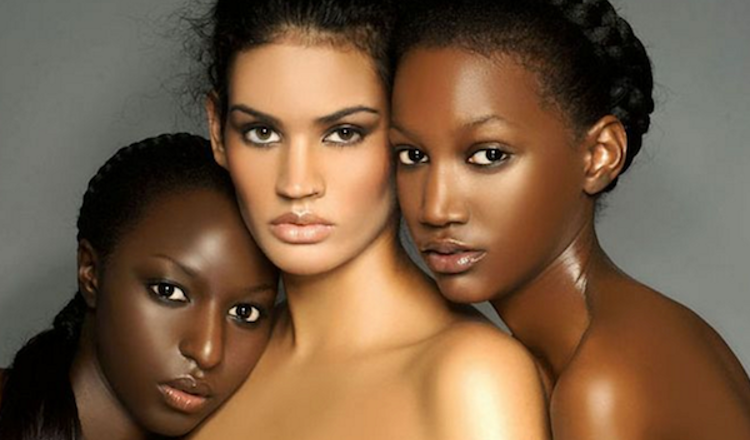
Is It Real Or Am I A Fetish? How Black Women Feel and Experience Interracial Relationships
This summer I went through my very first breakup
Why Attractive Black Women Trigger White People
. I recapped the entire thing to my friend over a hysterical video chat, beginning with the arguing, leading up to the Tinder notification, and ending with the discovery of another woman’s nudes in his deleted iCloud folder. My friend’s very first question, amidst my tears and freshly packed suitcases was, “Was she Black?”
Trying so hard to delete the memory of the mysterious woman in the photo from my mind, I didn’t at all question why our races mattered, or why my (white) friend felt so compelled to ask. Her race did not once cross my mind, but rather how the man I loved had his arms wrapped lovingly around a woman who was not me.
After weeks of replaying what went wrong, what went right, and all of the typical questions that plague one at the end of a relationship, I couldn’t help but wonder . . . are white people becoming aware of their exotification of brown bodies, or is it a defense mechanism to justify why women of color are physically attractive despite the eurocentric standards of beauty we are forced to uphold?
White Women Will Always Yearn to Be the Standard of Beauty
My circle of friends isn’t as colorful as it once was after finishing university. Recognizing my own privilege of affording to live and travel abroad, the sea of whiteness I tiringly find myself swimming in has made me hyperaware of how my race and performance of femininity as a straight, cisgender African-American woman affects how I navigate different cultures, and how they treat me in return.
I once believed women mistaking dislike for envy was a sexist way to hide insecurity, but after being in white spaces in both my social and professional life – spaces I typically steered from during my university days – I am discovering it holds some merit.

Femininity is measured in whiteness, and those who benefit from white ideals of beauty but aren’t necessarily conventionally beautiful are noticeably uncomfortable when women ranked lower on the racial hierarchy are praised for their looks.
White women, no matter how open-minded they believe themselves to be, still subconsciously see themselves as the “default,” and any nonwhite woman fitting into the “hot girl” trope is supposed to be the exception, not the rule.
Existing in white femme spaces has shown me a significant amount of competitiveness I’ve never experienced with other Black women, and I soon questioned if all of the cattiness and backhanded compliments I’ve encountered was racism in disguise. For instance, on a past trip to Portugal, a friend of mine took notice of the hostel receptionist complimenting me whenever we’d pass the front desk. “He must really like you,” commented my tall, model-thin brunette friend with a slight smirk. “He hasn’t said a word to me.”
I don’t believe her comment was of malice, but rather confusion. White women, no matter how open-minded they believe themselves to be, still subconsciously see themselves as the “default,” and any nonwhite woman fitting into the “hot girl” trope is supposed to be the exception, not the rule.
But oddly enough, resentment isn’t reserved for catty girls fighting for the attention of the cutest person in the nightclub – there is an abundance of women taking their frustrations out on good-looking Black women who deviate from the thin, blonde hair, blue-eyed aesthetic they were taught to aspire to.
I recall a moment at my old au pair job where I had come down the stairs with a freshly *beat* face and a put-together outfit to match. The two 5-year-olds I taught English to gleamed at my sudden change of appearance. My host mother, ignoring the “beautiful” compliments said by her children, promptly went on to state in front of the entire family how she does not need to wear makeup.
My looks were diminished into nothing more than a matte lipstick, foundation, and extravolumizing mascara. Her insecurities as an aging white woman drove her to compare herself to a 22-year-old headed out on a Friday night. Microaggressions such as these demonstrate how whites continue to enforce Anglicized beliefs of superiority, especially when upstaged by “others.”
Sadly, many Black women internalize these beliefs. It has brainwashed us into believing we are beautiful because we are different from white people, not because we are not white people. Society does not teach Black girls how and why to be confident, and the journey to self-love as members of a marginalized group begins with denouncing eurocentric ideals as the only embodiment of beauty.
Shattering the Myth of Black Bodies Being Easily Accessible to White Men
Unlike white women who may compete with women of color for male attention, white men mask their envy with entitlement. Refusing to acknowledge white men as potential sexual interests threatens the establishment they’ve created, where gaining white acceptance is the ultimate source of validation for people of color.
In many white-centric nations where the Black female body is hypersexualized and degraded, there is an unspoken truth that the supposed allure of blackness is nothing more than a commodity to be used for sexual consumption.
Violent responses from rejected men are not at all unique to women. What differentiates me from the next white girl is that my race positions me as someone who should be thankful for being under the white male gaze.
An English coworker of mine once labeled me a “stuck up bitch” for ignoring his many attempts at flirting. An American white guy who once walked me home told me to “go fuck myself” for not rewarding his pseudo-chivalry. And a drunk German guy told me I “don’t belong” to the country he himself was not a citizen of after I demanded he leave me alone. How much more aggressive and hateful could these men have become if we were not in public settings?
White men are triggered when denied by women they deem beneath them because it forces them to acknowledge their own mediocrity despite all of their privileges.
In all of these scenarios, I was not treated as a human being, but rather an object to be discarded because I failed to serve my sexual purpose to white buyers. If I had responded positively to their advances, would I have been publicly insulted for my character? Would I have been called nice instead of stuck-up? Would I have been welcomed into his white country instead of told to leave? If I did, their bigoted beliefs would not have changed.
Distinguishing Fetishization From Genuine Admiration Isn’t Up to White People
A Pair of Broad Bottoms, a caricature by William Heath from 1810, is a centuries-old “jezebel” image given to Black women that’s still an unfortunate theme in modern-day dating. You cannot ignore how race is an important factor in establishing the dynamics of one’s romantic relationship. Dating interracially comes with its own set of challenges, however, the “white is right” mentality is still heavily used to assess the worthiness of the non-white partner.
Black bodies were historically used for sex by force through slavery and other forms of oppression, denoting Black bodies as inherently sexual. As time went on and liberties were granted, those sexually involved with Black people were shamed and ostracized from their communities.
Black women are not shiny, limited-edition products. Believing our physical attractiveness is only desirable when white people deem it so is a form of misogynoir I will not partake in.
In many cases, white people ascribe the physical appeal of Black women to stereotypical attributes such as large butts and twerking, reinforcing the notion that said appeal is solely sexual. The issue arises, however, when fetishization is the only way to explain Black women with white or non-Black partners. It’s how white men exploit insecure Black women into sleeping with them, and how white women calm fears of being surpassed when choosing from the same pool of men.
Unfortunately, the effects of white supremacy continue to sneak into my dating life, and it’s a hard pill to swallow – despite how beautiful and intriguing I believe myself to be – that it’s not always my dazzling personality that captures the attention of men.
I haven’t completely reached the point where I can confidently order an Oreo ice cream swirl without some white guy telling me it “looks like us,” but regardless of the number of “I love the color of your skin” and “cream to your coffee” messages that flood my DMs, determining whether a man is fetishizing me or not is not up to the discretion of white people.
One of my truths as a young Black woman when dating interracially is being treated as a commodity, but at the same time, it’s not my only truth. It’s extremely problematic, even for well-intended white people, to shrink my desirability as a woman into a mere sexual fetish. The middle of these two extremes do exist, and if you think setting me up with some random white dude who “likes Black girls” is a favor, you’re racist too.
Celebrate Being Black and Beautiful, Unapologetically
I fear being a hypersexualized caricature just as I fear losing my sexual autonomy abiding by respectability politics. However, I still choose not to internalize messages that my beauty is only sexual, just as I refuse to be made guilty for believing I am pretty because I have good genes, not because I am a taboo.
Black women are not shiny, limited-edition products. Believing our physical attractiveness is only desirable when white people deem it so is a form of misogynoir I will not partake in.
To answer the question at the beginning: was the woman in the photo Black? No, she was not. And while I’d like to believe my friend surely meant well, her question was yet another reminder that even your most “woke” white friends feel some type of way when cute boys like you instead of them.








